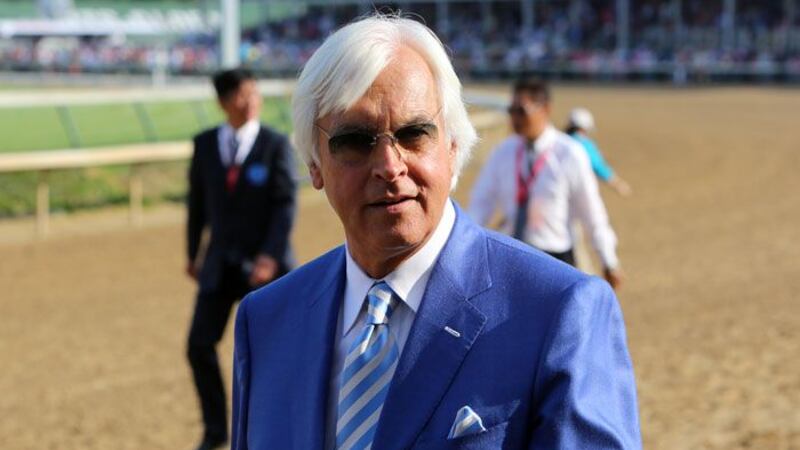Muhammad Ali: The FBI Files
LOUISVILLE, Ky. (WAVE) - America was in civil turmoil in the 1960s. It was no secret the Federal Bureau of Investigations was tracking African-American leaders.
“The FBI was no friend of the civil rights movement,” Purdue University professor and author Randy Roberts told WAVE 3 News.
For some time, the FBI was also no friend of Louisville native Muhammad Ali.
WAVE 3 News obtained more than 1,000 pages of once top-secret documents, a glimpse into the agency’s investigation into Ali. The documents showed how they followed where Ali traveled to, who he spoke with and even what he wore.
Roberts studied Malcom X’s FBI files while writing a book entitled “Blood Brothers: The Fatal Friendship Between Muhammad Ali and Malcom X.” The book talks about the influence Malcom X had on the boxing great.
Roberts explained at one time that the FBI saw Ali as a potential threat, and placed a great deal of scrutiny on The Champ.
The investigation lasted for several years during the 1960s. It revolved around Ali’s ties to the Nation of Islam, and its leader, Elijah Muhammad.
“There is a sense that this is an anti-white, separatist organization filled with hate, and potentially violent, and so they’re investigating everybody,” Roberts said.
Ali spoke against violence, but also was enamored to hear Elijah and Malcom X say black is beautiful.
“It gave me more pride,” Ali said on a WAVE 3 News program called “Black Is” back in 1974. “I felt proud. I started saying, ‘I am the greatest.’ And this is how I came into the faith.”
The FBI files show a network of agents from Chicago to Miami and Louisville. They focused on Ali’s belief at the time that blacks should have their own nation. That’s something that Ali didn’t shy away from.
“We need a whole country,” Ali said in that 1974 interview. “We’ve got too many black people out of work, too many black people on dope, too many prostitutes, we need too many jobs. There’s not enough jobs for white people who don’t have jobs. We need a country.”
WAVE 3 Listens host John Ramsey was one of Ali’s best friends. He said Ali’s perspective at the time was a product of the intense racial tensions that existed while he was growing up.
“If you were an African American in the 1960s and 1970s, like Muhammad was and raised in the 1950s, then you weren’t being treated very well,” Ramsey said.
Ramsey remembers talking to Ali about the FBI’s investigation.
“Muhammad knew that,” Ramsey said. “And knew that was part of being the heavyweight champ of the world, and standing up for what you believe.”
During those times, UofL historian Catherine Fosl said, Ali became a target.
“He became a very contested figure,” Fosl said. “There were those, like, you either loved him or hated him.”
The FBI file is littered with threats. One letter promised to assassinate Ali if he ever rode in an open car. Some of the threats were blacked out and labeled “obscene.” Some letters are signed by the KKK.
“The Klan murders and racist violence were a way of life,” Fosl said.
The files show how agents tried to pull fingerprints from the envelopes and letters, and how they tried to trace from where they were mailed.
Ramsey said threats didn’t deter the champ.
“If God, if Allah thinks this is how I will go down, then I think Muhammad, I’m not going to say he was OK with that, but he accepted that,” Ramsey said.
The file later jumps to 1989, before Ali’s presidential appointment to the Council on Physical Fitness and Sports. By that time, Ali had abandoned the Nation of Islam and become a Sunni Muslim. His message had evolved into one of inclusion for all races and religions.
“He embraces the idea that we’re all brothers of universal good will, of peace,” Roberts said. “He becomes the Muhammad Ali of his later years, kind of the beloved figure that we saw in the Atlanta Olympics and various other places.”
The FBI’s investigation eventually came to a close. Ali’s charity work and charisma won some people back.
“Am I fast?” Ali joked in the archive video. “I was in my hotel last night, I hit the switch in the room and was in the bed before the room was dark.”
“Muhammad Ali, above everything else, he was an enormously likable person,” Roberts said.
Ali was one who Ramsey said would have still kept fighting to make the world a better place.
“I loved him,” Ramsey said. “(I) miss him every day. A true hero and one of the few that I think is worthy of that title.”
Copyright 2019 WAVE 3 News. All rights reserved.








